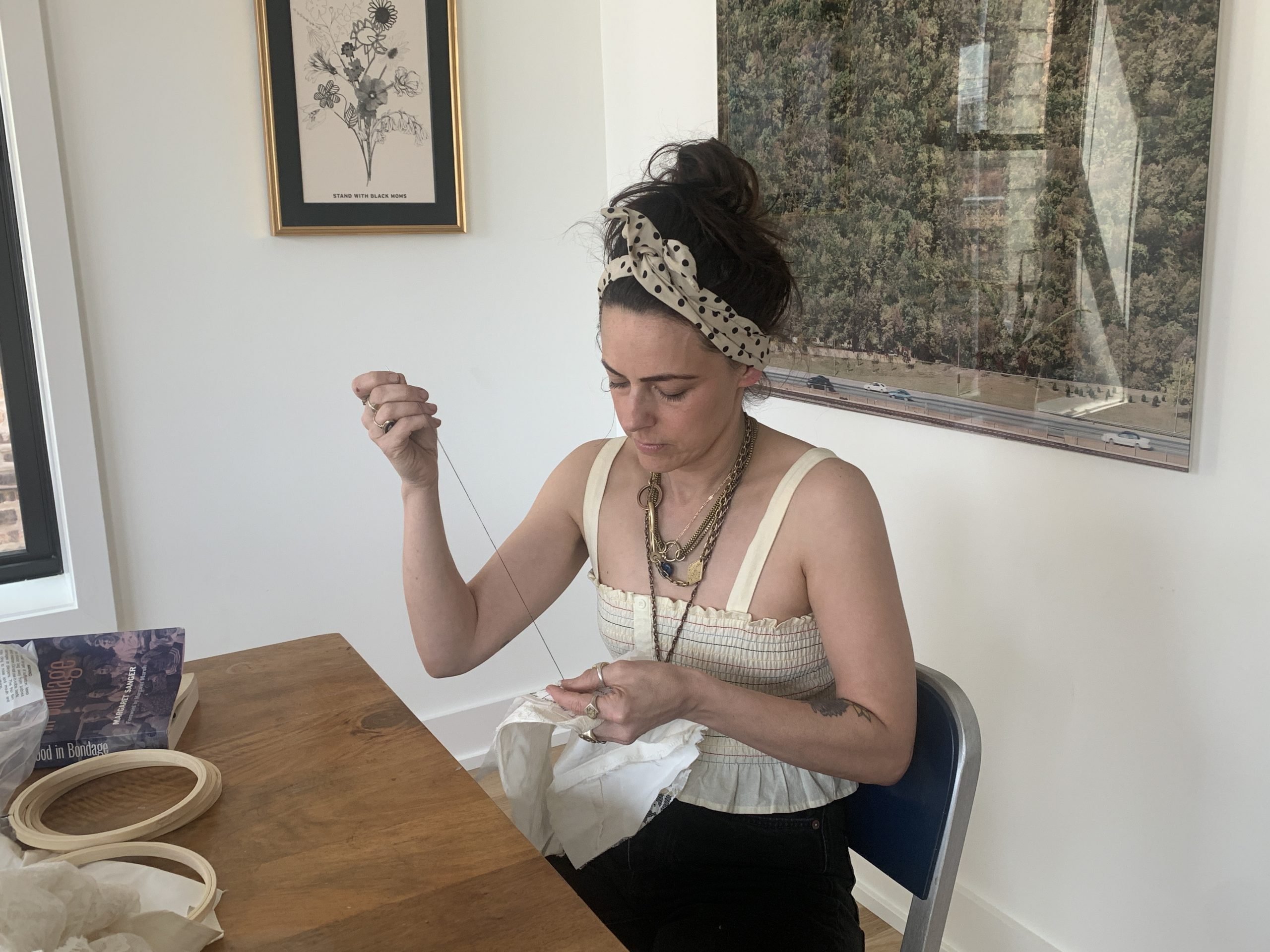
At a time when the U.S. Supreme Court is poised to overturn Roe v. Wade and take a giant step backward when it comes to women’s reproductive rights, one artist is inviting the public to reflect on the heart-wrenching experiences of women before abortion was legalized.
In 1928, Margaret Sanger, the founder of Planned Parenthood, published Motherhood in Bondage, a collection of letters that women across the U.S. had written her begging for information about contraception. They were helpless and afraid, their lives an endless cycle of pregnancies and childbirths, miscarriages and infant mortality.
“These letters are so important because it’s easy to dismiss women’s stories,” Chicago artist Michelle Hartney told Artnet News.
In December, she began inviting the public to hand-write copies of these poignant letters for her piece Unplanned Parenthood, a project that is perhaps equal parts educational and therapeutic.
Michelle Hartney, Unplanned Parenthood. Photo courtesy of Michelle Hartney.
“So much of the work that I make, it helps me get out my anger and sadness and rage over different injustices that I see going on in the world,” Hartney said. “A big part of doing this was just to deal with my sadness and anger.”
The handwritten letters will then be hand-embroidered onto scraps of vintage wedding dresses dyed with dandelion, a flower that was once picked for bouquets and now is considered a weed, symbolizing how drastically things can change in a lifetime.
The stories these letters tell are hard to read. Many writers faced extreme poverty. They were often acutely aware of the risks to their physical and mental health, and that of their children, who often died extremely young.
One 43-year-old woman with 19 children wrote that she would “rather die than give birth to another child.” Another, who was just 14 when she married, was pregnant for the 17th time. “I am only 39 years and all wore out,” she wrote.
Michelle Hartney, Unplanned Parenthood. Photo courtesy of Michelle Hartney.
“There were women who described trying to stay away from their husbands, and their husbands would get mad at them for withholding sex,” Hartney said. “The ones that really broke my heart were the women describing ‘having the nerves.’ It was postpartum depression, but they didn’t have the words for it, and they didn’t know what they were going through.”
When the letters were written, the Comstock laws outlawed the sale, dissemination, or possession of “obscene” publications, which included information about contraception. That meant Sanger’s 1914 pamphlet, Family Limitation, was illegal. Still, more than 250,000 women got word of her expertise and wrote letters seeking help.
“It was one of the ways that people found out that Sanger had information about contraception, which sparked the letters,” Hartney said.
Michelle Hartney, Unplanned Parenthood. Photo courtesy of Michelle Hartney.
Hartney plans to present the work as an installation that will also contend with Sanger’s promotion of eugenics, a form of scientific racism studying arranged reproduction. She hopes the final work will educate viewers about both Sanger’s racism and the ongoing struggle for women’s reproductive freedom in the U.S.
Hartney will create porcelain armatures on which to hang each embroidered letter, in part a reference to the role of fine china as a traditional wedding gift. Each one will be hand-painted with dyes made from flowers that have been historically used to induce miscarriage.
To complete the time-consuming project, Hartney is seeking volunteers to embroider the letters. She will mail them kits with fabric and thread.
Michelle Hartney, Unplanned Parenthood. Photo courtesy of Michelle Hartney.
“I was going to just do 20 letters and sew them myself, but then I realized this was going to be a way better project if it is collaborative—and it takes an insane amount of time to sew each word,” Hartney said.
“As long as it’s legible, then I am happy,” she added. “And if you don’t have the time or the energy to finish it, send it back and someone else will pick it up.”
Hartney is already soliciting volunteers on the project website and will stage in-person sew-in and write-in events at 21C Museum Hotels, which have locations in 11 cities across the South and Midwest.
Michelle Hartney, Unplanned Parenthood. Photo courtesy of Michelle Hartney.
“It’s almost as if they strategically placed in states that are going to lose access to abortion, so we’re not just preaching to the choir,” Hartney said.
Sadly, she sees Unplanned Parenthood as a harbinger of things to come. Twenty-six states have “trigger” laws in place to outlaw abortion the moment the Supreme Court strikes down Roe and these nearly century-old letters will soon have 21st-century counterparts.
“We need to collect the stories that are already coming out of places like Texas where there is essentially a ban on abortion,” Hartney said. “It is really important to collect the stories now.”